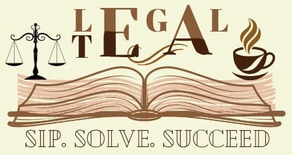Inside the Game: The Dark Art of Insider Trading
"When knowledge becomes currency, truth becomes contraband." — A Wall Streets Compliance Officer (anonymously) From the glimmering glass towers of Wall Street to the buzzing terminals of hedge funds, there exists a silent war over information. But not all knowledge is shared equally. Enter: insider trading—a treacherous undercurrent beneath the pristine façade of financial markets.
Kirandeep Kaur, 3rd year, B.A; LL.B
4/24/20253 min read


What Exactly Is Insider Trading?
Insider trading refers to buying or selling a public company’s stock based on material, non-public information (MNPI). This could be a soon-to-be-released earnings report, a secret merger negotiation, or an FDA drug approval that's still under wraps.
Important Distinction:
Legal Insider Trading does exist—like when executives trade their own company's stock and report it to the SEC. What we’re diving into is illegal insider trading, which violates fiduciary duty and market fairness.
Legal Framework: How the Law Sees It
Key Statutes:
Securities Exchange Act of 1934 – The cornerstone of U.S. securities law.
Rule 10b-5 – Prohibits any act or omission resulting in fraud or deceit in connection with the purchase or sale of any security.
Two Dominant Legal Theories:
Theory Explanation
Classical Theory Insider breaches duty to shareholders by trading on MNPI.
Misappropriation Theory Outsider misuses confidential information, violating duty to the source.
“Even a janitor who overhears M&A news and trades on it could be liable under misappropriation theory.”
— Professor Elizabeth Nowicki, Ex-SEC Attorney
Infographic: Anatomy of an Insider Trade
The Pipeline of Illegality:
Insider (e.g., exec, lawyer, consultant)
Tippee (e.g., friend, hedge fund)
Execution (trading before public news)
Ripple (market misled, prices skewed)
Famous Cases That Rocked the Market
“Greed, for lack of a better word, is not just good—it’s illegal if it’s based on inside information.”
— A modern Gordon Gekko
Raj Rajaratnam (Galleon Group)
2009 – Sentenced to 11 years, fined $92.8M
Built a web of insiders across tech and healthcare companies. One of the largest insider trading cases in U.S. history.
Martha Stewart & ImClone
2001 – Not insider trading per se, but obstruction of justice Sold shares based on a tip from her broker’s assistant. Served 5 months in prison. Lesson: even whispers can echo in court. Elon Musk’s “Funding Secured” Tweet
2018 – SEC charged him with misleading investors
Though not traditional insider trading, this case illustrates how information asymmetry can distort markets.
Insider Trading Prosecutions (2010–2024)
Year Cases Filed Convictions Avg Sentence (Months)
2010 43 38 18
2015 58 54 24
2020 47 45 22
2024 61 59 26
Trend Insight: Thanks to advanced surveillance tech and whistleblower incentives, detection and conviction rates are steadily rising.
Legal Safeguards & Corporate Best
Practices
How Companies Stay Clean
“Compliance is a culture, not a checkbox.” — Gary Gensler, SEC Chair
Blackout periods for executive trading
Digital surveillance and behavioral analytics
Whistleblower protections (Dodd-Frank Act)
Mandatory training on insider protocols
Internal pre-clearance for stock trades
Fun Fact: Firms with strong compliance cultures outperform peers by an average of 2.5% annually, according to a 2023 Harvard Law Review study.
Callout: What If You Accidentally Receive Insider Info?
❌ Don’t trade on it.
Report it to compliance.
Document the interaction.
Wait until the information becomes public.
“When in doubt, don’t act—document.” — C-Suite Compliance Officer
A Philosophical Take: Is Insider Trading Ever Justified?
Some libertarian economists argue that insider trading increases market efficiency by speeding up the dissemination of information.
But critics say it undermines trust, equality, and transparency. “Markets thrive on confidence. Strip that away, and you get chaos masquerading as capitalism.” — Dr. Susan Hartwell, Ethics in Finance Professor
Closing Thoughts: Integrity in an Era of Information
Insider trading is not just a legal issue—it’s a moral reckoning. In a world where data moves faster than the speed of regulation, the integrity of individuals must be the firewall.
Whether you’re a portfolio manager, retail trader, or TikTok stock guru, the golden rule still applies:
“Don’t profit from what others can’t possibly know.”
The Ethical Curtain Call
In the theater of capitalism, transparency is the house light. Insider trading, in its essence, dims that light—transforming free markets into rigged games.
To be an insider should mean being a steward of trust, not a profiteer of secrecy. The pursuit of justice in finance isn’t just about catching the wolves—it’s about ensuring the flock remains safe.
Final Word from the Law:
“Those who betray the trust of the market—whether in whispers or wire transfers—will eventually be heard by the ears of the law.” — SEC Chair Gary Gensler
Author’s Note:
Insider trading may seem like a glamorous, cloak-and-dagger subplot of Wall Street. But for every illegal dollar gained, trust in the system loses a dime. The battle between information and integrity continues—and it's not just fought in courtrooms, but in the conscience of every player in the market.
Disclaimer: This article is for educational purposes only and does not constitute legal advice. For professional counsel, consult a qualified securities attorney.
Because Every Legal Mind Deserves a Great Conversation.
Legaltea.in@gmail.com
+91 6284295492
MSME Certified
© 2025 Legal Tea. All rights reserved.


